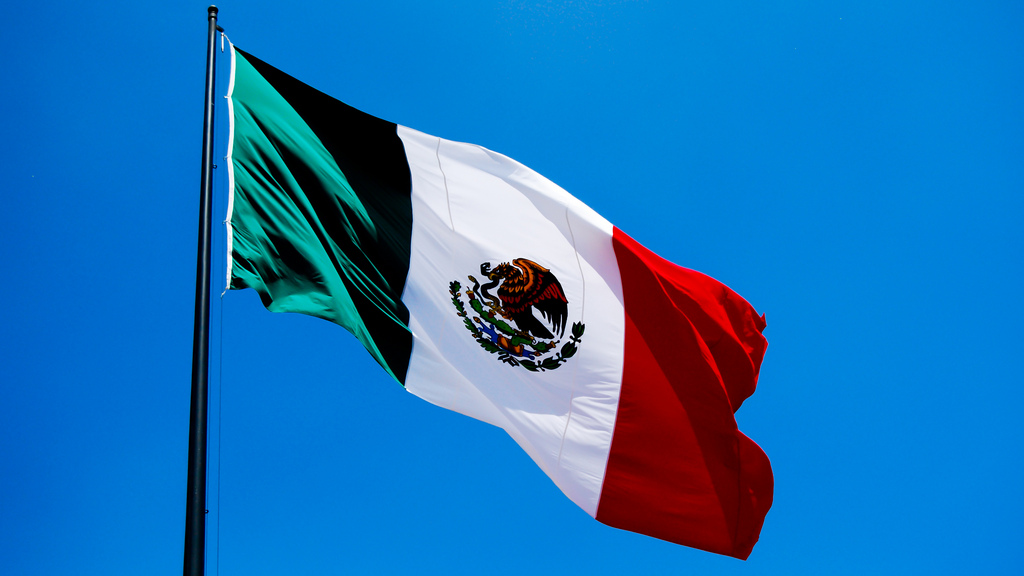Mexico’s deadly virus

Image via Flickr
The United States lives in a state of constant fear. Currently, Ebola is to blame. The U.S. fears (but maybe also hopes) to be part of a world that is, to some American minds, every day likelier to live a pandemic outbreak like the one in The Walking Dead. But they are afraid to get infected without even realizing they have already caught something: indifference towards death.
It is an indifference that already “infected” the Mexican people and that has rapidly propagated throughout the world, even if few have mentioned it. Until last October 27th, around 13,000 cases of Ebola had been reported and 4,920 people had died of the virus worldwide, creating global outrage. Meanwhile, in Mexico, 57,899 homicide cases were reported between December 1st, 2012, and July 31st, 2014. And there was barely any international news about them.
This doesn’t mean that some deaths should be more concerning than others. Ebola has highlighted again the dismal conditions that certain parts of Africa deal with, but also how the world is vulnerable to a distant pandemic. But, for years, those 60,000 deaths in Mexico did not highlight anything.
It seems these people died in the wrong place. Had they died, instead of Iguala, Ciudad Juárez, San Fernando, Ecatepec, Tetlaya, Aguas Blancas, Acteal, etc., in, München, Lyon, or Oslo, what would have happened?
These deaths seemed to not matter, to not make any kind of impact. Mexico has deteriorated to the point that, when a mass grave with 28 bodies was found, but they didn’t correspond to the missing people the authorities were looking for… it was reported as good news.
Nonetheless, the unfortunate disappearance of 43 students (I refuse to think they are dead) in Ayotzinapa and the murder of six of them by the municipal police of Iguala, in the state of Guerrero (acting, allegedly, under government’s orders), managed to shake the indifference of Mexico’s lethargic society. However, we Mexicans are still far from reaching our goals, basically because we are not sure what they really are. We are fighting different fronts and enemies as citizens.
I saw the press conference that Jesús Murillo Karam, Mexico’s General Attorney, gave last Friday and I could only think about all the victims. When I listened to the confessions from the Guerreros Unidos members, I thought the killers were also victims here.
They are also victims of the indifference; of the cynicism, arrogance, and ineptitude displayed by Murillo Karam during the press conference; of the sumptuousness of president Enrique Peña Nieto. “EPN”, as he is known, owns a seven million dollars house and his indolence showed when he took a trip to China and Australia amid the social and political crisis that Mexico is experiencing (he didn‘t even set a foot in Iguala, where it all happened).
All of them are victims of all the impunity that protects the whole political class in Mexico. The killers, just as the students, are also victims of a political system that has turned all of us into mere objects, devoid of our humanity. While describing how they tossed the bodies into a dump where they later burned them, one of the Guerreros Unidos members said: “One of us grabbed them by the hands and another one grabbed their hind legs. We swung them and then the bodies rolled into the bottom”.
Many Mexicans have organized massive protests, both in Mexico and abroad, trying to call the attention of international media and foreign countries, in order to pressure, politically and diplomatically, those in power in Mexico. Fortunately this is happening and they are turning their eyes towards what is going on in Mexico. They also have managed to pressure Mexican government to start finding real answers to questions that it hadn‘t answered until now. But it hasn‘t been enough. We have to spread a new disease, one that raises consciousness around the world about what happens in Mexico.
What the country needs in order to start seeing results is a complete transformation. That transformation begins with the spreading of information and the abandonment of an indifference state. We are seeing this happening and these are good news. Mexican people cannot get tired at this point. We must continue our struggle against this gigantic hydra that, “allegedly” is the one getting tired.
Mexico is looking for a helping hand. With the aid of non-violent arms we believe we deserve to get out if this huge mass grave that the country has become. Help and solace are wanted. This is why we have been taking the streets: to inform people of what is going on. We want to tell this story, and show the world that this indifference is scarier than a virus. If we manage to build awareness all over the world about what is happening in Mexico, somehow, I want to think, another step towards transformation will be taken. This is why we all must be Ayotzinapa. And in the end, we are all Ayotzinapa.



















